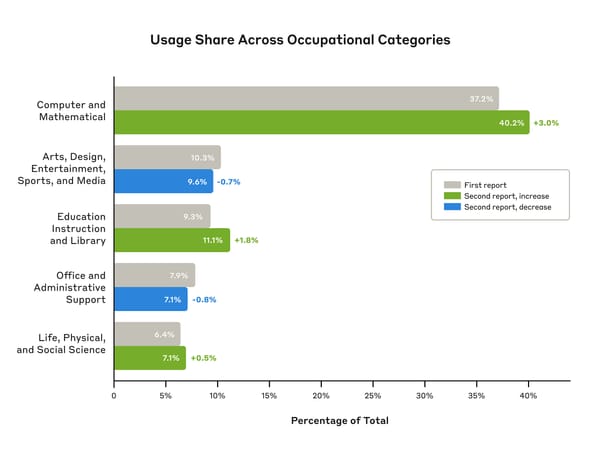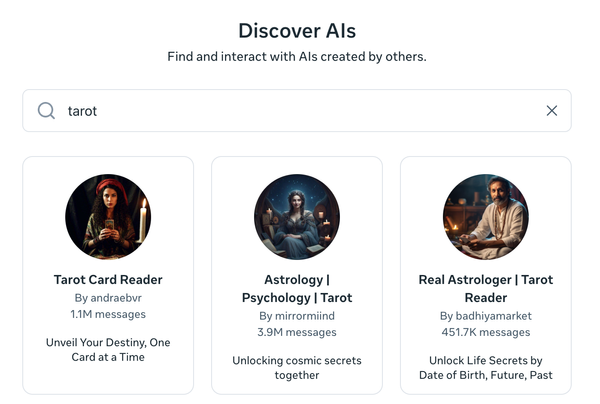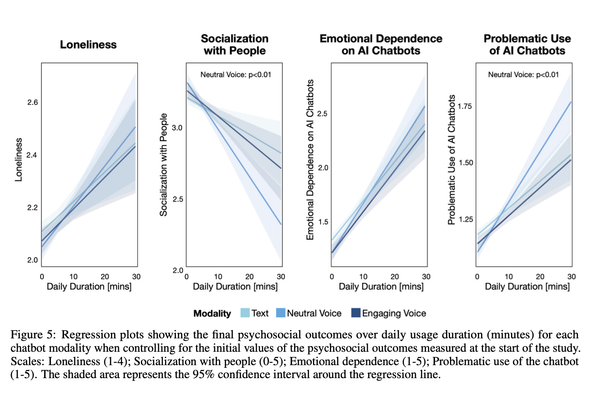Why Reddit is still betting on the blockchain
CEO Steve Huffman on making the web more user-friendly — and his plan to "not use any crypto words"

Crypto critics have had a very good year. Much of what they predicted has come to pass: that high-profile projects would be revealed as Ponzi schemes; that security lapses would lead to massive thefts; and that average people would be left holding the bag. Bitcoin, which was trading around $67,000 in November, is at $21,570 today; plenty of other cryptocurrencies are much worse off.
As I noted here last month, though, on social networks it can feel like the crypto crash really never happened. Over the past few months, Facebook and Instagram added ways for users to showcase non-fungible tokens, and Spotify let artists use NFTs as their profile pictures.
The origin of that piece was the news that Reddit, the venerable social news aggregator and discussion site, had released its first “blockchain-backed collectible avatars” — what other companies call NFTs. Created by a handful of artists, the avatars riff on Reddit’s “Snoo” alien mascot and can be used as profile pictures on the site.
In the video game industry, selling NFTs has often raised a furor among gamers angry at what they perceive to be pure greed. But while Reddit takes a 5 percent cut of sales from the NFTs, its announcement came and went without much fuss.
This month, the company went a step further: beginning on August 17, it began to give away collectible avatars for free to 10 million users. About 50,000 have been given away so far to long-time Redditors who have made popular contributions to their communities; the remainder will be given out over the next few weeks. The only catch is that users have to set up a crypto wallet to receive it — the first step, Reddit hopes, in encouraging millions of users to begin exploring the concept of “portable identity.”
Some people hear phrases like that and their eyes roll back so far in their head that they may never recover. But a significant number of executives at tech platforms big and small continue to believe that somewhere in all this lies a solution to many of the criticisms we have of our current lives online: that a small number of companies have too much power; that our data is locked up and inaccessible to us; that platforms ask us to share more of ourselves than we are comfortable with.
Steve Huffman is one of those executives. A co-founder of Reddit and its CEO since 2015, Huffman says he has been fascinated by blockchain technologies since the early days of Bitcoin, when he would marvel at the fact that some people were willing to pay as much as seven cents for one.
Avatars were a natural starting point for Reddit’s blockchain explorations, he said, since people use the feature differently on Reddit than they might on iMessage or Snapchat. There, avatars typically represent users somewhat accurately, as cartoon versions of themselves. Reddit avatars, on the other hand, are aliens, meant to highlight aspects of a user’s personality without giving away their true identity.
Launched about a year and a half ago, roughly one third of logged-in Reddit users have created avatars so far, he said.
“You can reveal your hobby without revealing your race. You can reveal some of your style without revealing your age or your gender,” Huffman told me at the company’s offices in the Mid-Market neighborhood of San Francisco. “This idea of capturing some of your own identity there, on your own terms, is a very Reddit thing to do. I wish we had done this 10 years ago — because it really fits Reddit.”
Letting artists sell avatars on the platform was linked to a separate goal of helping Redditors earn money from other users, Huffman said. But he also wants to move away from a world where digital goods are controlled by the platform that creates them.
“What crypto adds is the ability to own digital things,” he said. “Before that, you could create digital goods, like in a game. But those goods ultimately exist at the pleasure of the company that creates them, or runs the database. And so it’s not actual ownership — I’d like to get closer to actual ownership.”
Already, he notes, a user can choose to display their digital Reddit avatar as part of a collection on Instagram, or use it as a profile picture on Twitter. The companies didn’t sign a partnership deal to make that happen — it just works because the blockchains run on an open standard.
“We don’t work with any of these companies,” Huffman said. “I can’t say we’re the best of friends. But now we have this third-party database — an interoperability layer. I think that’s really cool.”
Of course, that’s not to say that many people will be racing to bring their Snoos to Twitter. But it does hint at what could be possible in the future, Huffman said. People may start by bringing a profile picture with them around the internet; later, other bits of identity could become portable as well. Reddit users reward each other with “karma” points for sharing high-quality links or making good comments; what if you could log in to other websites with your Reddit karma?
The company took a step in that direction in 2020, when it announced a still-ongoing experiment called “community points.” Based on Reddit’s existing karma model, community points enable subreddits to award users tokens that exist on the Ethereum blockchain. The company has proposed a variety of uses for these tokens, including polls that give more weight toward active participants in the community, prizes for contests, and enabling users with good reputations to access extra features in other apps and websites.
The company’s avatar bet, in a way, is even bigger: an effort to get 10 million people to begin actively using crypto wallets — without ever calling them crypto wallets or (hopefully) using any crypto-related words at all.
“We try really hard not to use any crypto words — it just confuses people,” Huffman said. “The ecosystem is so confusing. I can’t figure out half this stuff.”
Huffman offered a metaphor to make his point.
“One of my frustrations with the crypto community is like, you know how everything in open source is just a little bit worse? But they're like, ‘it's amazing! Look at this Microsoft Word replacement, it's just as good! No it’s not. Crypto’s like that, again.”
Like every crypto builder, Huffman’s challenge is to abstract away all those confusing terms and arcane user experiences, and replace them with something approachable and valuable. Few if any companies have hit that bar to date, despite years of trying and billions of dollars invested.
Reddit also has to conduct its explorations without triggering the sort of backlash that video game companies have experienced when they announce blockchain projects. Huffman told me he is confident that the company can — and said the recent crash makes it easier to focus on building utility.
“I was anti-profiteering, anti-bubble,” he said. “All of this crypto stuff I found extremely distasteful and counter-productive for years, which is why we don’t talk about it. Because I didn’t want to get sucked into the hype, which I think is parasitic and delusional. Our business model is never, let’s sell NFTs to crypto people to make a bunch of money. Our goal is to put identity and reputation into a third-party database.”
The next steps, then, are to get people using wallets, and from there see what other parts of Reddit might be devolved away from the platform to users and their communities.
I enjoyed talking to Huffman, who brings the right kinds of skepticism to a technology that has been poisoned by wide-eyed optimists and outright scammers. At the moment it can feel as if the tech world is investing most of its energy into a set of Legos that no one has figured out how to put together — using building blocks like identity, ownership, and decentralization to make … something, and hope that the end product is worth all the effort.
“The backlash usually comes from profiteering — we’re distinctly and intentionally not doing that,” Huffman told me. “The product may or may not work. But its success won’t come at the expense of our users.”
Elsewhere in crypto: Despite a massive marketing push earlier this year around the Super Bowl, the number of Americans who say they have invested or traded in cryptocurrencies remains static at 16 percent. And $100 million worth of NFTs were stolen over the past year, according to blockchain research firm Elliptic.
Governing
- A judge dismissed as “absurdly broad” Elon Musk’s requests for a wide variety of user data related to his effort to abandon his purchase of Twitter, though he will get “data from 9,000 accounts sampled in a fourth-quarter audit to estimate the number of spam or bot users on the social media platform.” (Tom Hals / Reuters)
- Google said it would begin clearly labeling sites that provide abortion care in search and maps, after investigations found that it often directs people to anti-abortion “crisis pregnancy centers.” (Aisha Malik / TechCrunch)
- Meta confirmed it is building a customer-service division to help users regain access to their accounts after the Oversight Board reported that a significant portion of appeals requests that it processes are related to account suspensions and deletions. I’m so glad to see this. When will Google follow suit? (Kurt Wagner / Bloomberg)
- Meta’s latest community standards enforcement report found mostly stable prevalence in bullying, hate speech, and incitements to violence. The “widely viewed content” section of this report remains singularly uninformative. (Meta)
- Instagram now makes it harder to find and message children under 16 by opting them into its most restrictive content settings by default. (Sarah Perez / TechCrunch)
- Data regulators in Ireland and France say they want to talk to Peter “Mudge” Zaitko about his whistleblower complaint against Twitter. (Natasha Lomas / TechCrunch)
- Twitter acknowledged making a series of errors in enforcing its COVID-19 policies, leading to several improper account removals and many accurate posts being labeled as misinformation. (Taylor Lorenz / Washington Post)
- A critique of California’s Age-Appropriate Design Code, which could require every website to make efforts to determine the age of its users. (Mike Masnick / TechDirt)
- A profile of 0ktapus, the hacking group responsible for the breach of Twilio earlier this month, which has compromised 130 organizations so far. (Carly Page / TechCrunch)
- “The U.S. and China are nearing an agreement that would allow American accounting regulators to travel to Hong Kong to inspect the audit records of Chinese companies listed in New York.” (Keith Zhai / Wall Street Journal).
Industry
- Mark Zuckerberg went on Joe Rogan’s podcast. At nearly three hours, it’s easily Zuckerberg’s longest interview of the year. Starts off very metaverse-focused and then gets into content moderation. (Spotify)
- He also told Rogan Meta will debut its new VR headset in October. (Jonathan Vanian / CNBC)
- ByteDance launched an ad-free search engine called Wukong in China amid some upheaval in the Chinese search market. (Coco Feng / South China Morning Post)
- “ByteDance is pushing into at least half a dozen other industries at a shocking scale, snapping up everything from video game startups to medical websites and payment processors, even dabbling at one point in education apps and real estate listing businesses.” (Alexandra S. Levine and Emily Baker-White / Forbes)
- Twitter is testing regular podcasts in the Spaces feed. (Ariel Shapiro / The Verge)
- Sandeep Pandey, a vice president of engineering at Twitter, decamped for Facebook to work on machine learning and AI. (Kali Hays / Insider)
- Amazon is shutting down its Care primary healthcare service for failing to resonate with customers. (Todd Bishop and Taylor Soper / GeekWire)
- Google-owned Waze is shutting down its six-year-old carpooling service, citing shifting behavior related to COVID-19. (Andrew J. Hawkins / The Verge)
- A look at Argos, the specialized high-performance chips Google makes to transcode videos on YouTube. (Max A. Cherney / Protocol)
- A look at “niche internet micro celebrities,” often used in a tongue-in-cheek way, who cultivate tiny followings primarily in the name of entertainment. (Taylor Lorenz / Washington Post)
- The Block, which I often link to here for crypto stories, said it would adopt a paywall that you get past by temporarily staking your crypto tokens. (Sara Fischer / Axios)
Those good tweets
The opposite of a Debbie Downer is a Bethamphetamine
— John Shields, MD, FAAOS (@jointdocShields) 12:52 AM ∙ Aug 18, 2022
oomf had an interview with *pple and she wore a black turtleneck and glasses and told the interviewer "do i look familiar" 😭
— lamb (@Iongkissgoodbye) 1:40 AM ∙ Jun 14, 2022
a bit in love with the way wealthy children describe their mothers’ mental illness & ailments in older books…. it’s always like “we mustn’t bother mother. she’s taken to bed with one of her colorstorms”
— Sydney Battle (@SydneyBattle) 2:44 AM ∙ Aug 23, 2022
Be on the lookout for Elon Musk's missing child
— steven monacelli (@stevanzetti) 8:21 PM ∙ Aug 24, 2022
Talk to me
Send me tips, comments, questions, and Reddit avatars: casey@platformer.news.





